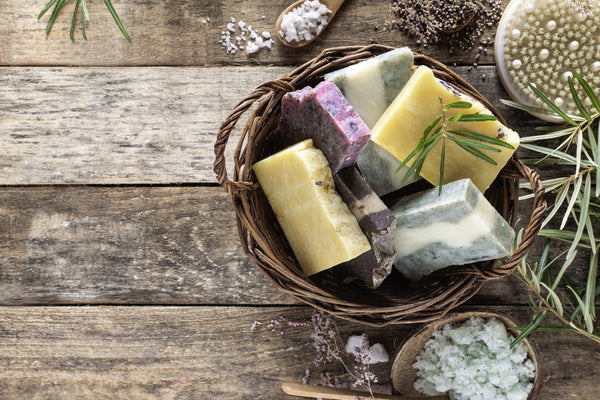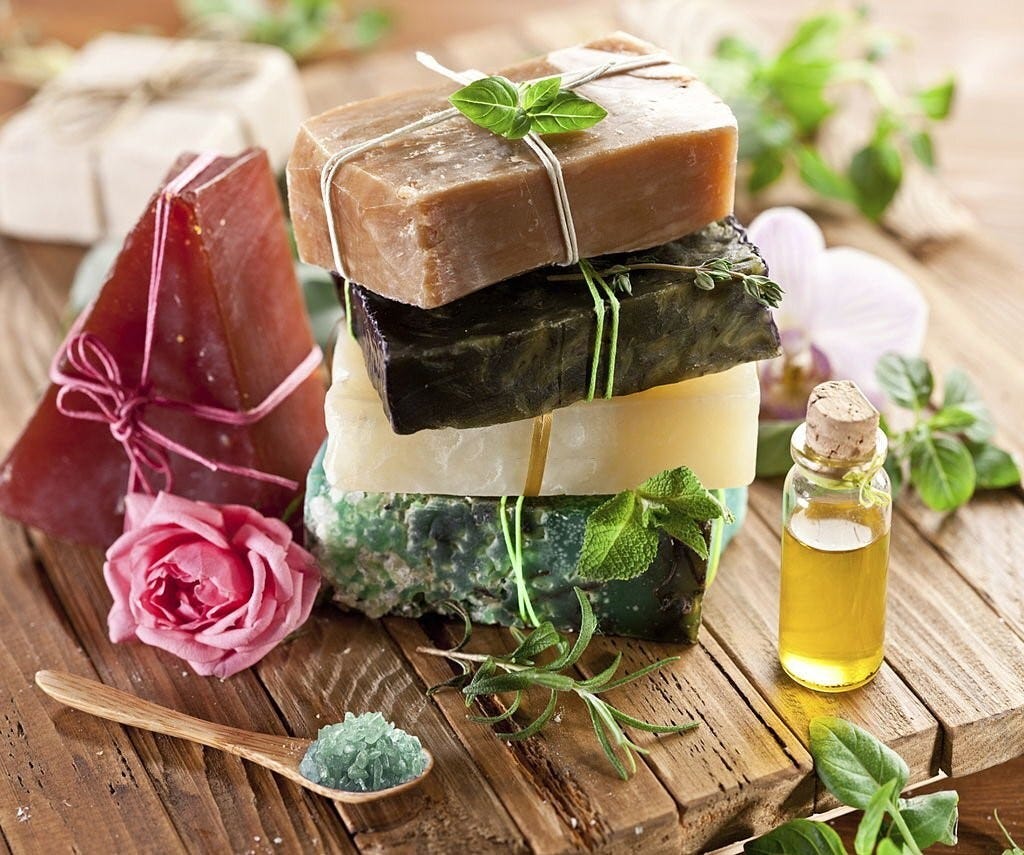Benefits of Using All Natural Soap
Natural soap has become increasingly popular in recent years due to its numerous benefits for the skin. One of the primary advantages of using all natural soap is that it is free from harmful chemicals and synthetic ingredients that can irritate the skin. Many commercial soaps contain harsh detergents, fragrances, and preservatives that can strip the skin of its natural oils and disrupt its pH balance. On the other hand, all natural soap is made from natural plant-based ingredients, such as essential oils and botanical extracts, which are gentle and nourishing for the skin.
Another benefit of using all natural soap is that it can help promote healthier skin. Natural ingredients like coconut oil, shea butter, and olive oil have moisturizing properties that can keep the skin hydrated and prevent dryness. Additionally, certain natural ingredients like tea tree oil and lavender have antibacterial and anti-inflammatory properties that can help soothe and heal various skin conditions, including acne, eczema, and psoriasis. By using all natural soap, you can improve the overall health and appearance of your skin.
Benefits of All Natural Soap for Your Skin
Using all natural soap can provide numerous benefits for your skin. First and foremost, natural soap is made from plant-based ingredients that are gentle and nourishing for the skin. Unlike commercial soaps that contain harsh chemicals and artificial fragrances, all natural soap does not strip away the skin’s natural oils or cause irritation.
In addition, natural soap is rich in antioxidants, vitamins, and minerals that can help improve the overall health and appearance of your skin. These natural ingredients work together to hydrate, cleanse, and rejuvenate the skin, leaving it feeling soft, smooth, and supple. Whether you have dry, sensitive, or problematic skin, using all natural soap can help keep your skin balanced and healthy.
The Harmful Chemicals in Commercial Soap
Commercial soaps, commonly found on store shelves, often contain a myriad of harmful chemicals that can be detrimental to both our skin and overall well-being. One of the most common offenders is sodium lauryl sulfate (SLS), a harsh detergent that is used to create lather. SLS can strip the skin of its natural oils, leading to dryness, irritation, and even allergies for some individuals. Additionally, many commercial soaps contain synthetic fragrances, which may smell pleasant but often harbor a host of harmful chemicals, such as phthalates, which have been linked to hormonal disruptions and adverse health effects.
Furthermore, commercial soaps often contain artificial colors, which may seem appealing, but their vibrant hues are typically achieved by using synthetic dyes that can irritate the skin. Preservatives, such as parabens, are also commonly found in commercial soaps to prolong their shelf life. However, these chemicals have been linked to disruptions in the body’s hormonal balance and may even have carcinogenic properties. Therefore, it is important to be informed about the harmful chemicals present in commercial soaps and consider making a switch to all-natural alternatives that offer safer and gentler options for our skin.
Understanding the Ingredients in All Natural Soap

When it comes to understanding the ingredients in all natural soap, it’s important to familiarize yourself with the basic components that make up this cleansing product. All natural soaps are typically made from a combination of plant-based oils, such as olive, coconut, and palm oils. These oils are carefully chosen for their nourishing properties and ability to cleanse without stripping the skin of its natural oils. Additionally, all natural soaps often contain essential oils, which not only provide a pleasant fragrance but also offer various therapeutic benefits. These oils can range from lavender and tea tree oil to citrus and eucalyptus, offering a range of options to suit different preferences and skin types.
Another key ingredient commonly found in all natural soaps is natural colorants. These colorants are derived from natural sources such as herbs, spices, or clays, giving the soap its distinct and vibrant hues. By using natural colorants, all natural soap not only avoids the potential harm caused by artificial dyes and chemicals found in commercial soaps, but it also adds a touch of beauty and uniqueness to each bar. Understanding these basic ingredients can help you make an informed decision when choosing all natural soap, ensuring that you are selecting a product that is gentle on your skin and beneficial for your overall well-being.
The Environmental Impact of Commercial Soap Production
Commercial soap production has a significant environmental impact that often goes unnoticed by consumers. One of the main concerns is the excessive use of water. The production process requires large amounts of water for mixing, cooling, and cleaning. Moreover, the wastewater generated during soap manufacturing contains chemicals and additives that can pollute local water sources if not properly treated. This not only affects the aquatic ecosystems but also poses a threat to human health when contaminated water is consumed or used in agricultural practices. Additionally, the energy-intensive nature of commercial soap production contributes to greenhouse gas emissions, exacerbating the problem of climate change. The reliance on fossil fuels for power generation and transportation further compounds the environmental footprint of this industry. From extraction to disposal, every step of the commercial soap production cycle has the potential to harm the environment if not managed responsibly.
How All Natural Soap Supports Sustainable Living
All natural soap not only benefits your skin, but it also supports sustainable living. One way it does this is by using organic and ethically sourced ingredients. Unlike commercial soap, which often contains synthetic chemicals that harm both your body and the environment, all natural soap is made from plant-based ingredients that are gentle on your skin and biodegradable. By choosing all natural soap, you are supporting sustainable farming practices and reducing the amount of harmful chemicals being released into our water systems.
Another way all natural soap promotes sustainable living is through eco-friendly packaging. Many commercial soaps come in plastic containers that end up in landfills and contribute to pollution. On the contrary, all natural soap is often packaged in recyclable or biodegradable materials, such as paper or cardboard. This reduces waste and encourages the use of sustainable alternatives. By opting for all natural soap, you can minimize your environmental impact and contribute to a more sustainable future for all.
The Importance of Supporting Local Artisans and Small Businesses
Supporting local artisans and small businesses is of paramount importance for the overall well-being of the community. When you choose to buy products from local artisans and small business owners, you directly contribute to the local economy, nurturing a sense of collective prosperity. By doing so, you also help in building a vibrant and diverse marketplace that offers unique and authentic products.
When you support local artisans and small businesses, you play a vital role in preserving cultural heritage and traditional craftsmanship. These artisans often possess unique skills and knowledge passed down through generations, creating products that tell a story of their rich history. By purchasing their goods, you are helping to ensure that these crafts survive and thrive, allowing future generations to appreciate and benefit from their beauty and artistry. Additionally, when local businesses succeed, they are more likely to invest in and give back to the community, enhancing the overall quality of life for everyone involved.
The Health Benefits of Using All Natural Soap
All natural soap offers numerous health benefits for your skin. Firstly, it is free from harsh chemicals and synthetic ingredients that can irritate and dry out your skin. Unlike commercial soaps, which often contain sulfates and artificial additives, all natural soap is gentle and nourishing, making it ideal for individuals with sensitive skin. It helps to retain the skin’s natural moisture levels and can even soothe conditions such as eczema and psoriasis.
In addition, all natural soap is infused with beneficial natural ingredients that provide extra nourishment and protection for your skin. Ingredients like essential oils, shea butter, and coconut oil have moisturizing properties that leave your skin feeling soft and smooth. These natural oils also contain antioxidants, which help to fight against free radicals and reduce signs of aging. By using all natural soap, you can support the health and vitality of your skin while avoiding the negative effects associated with chemically-laden commercial soaps.
Addressing Common Misconceptions about All Natural Soap
Misconceptions about all natural soap often arise due to a lack of understanding about the ingredients used. Some people believe that natural soaps are not as effective at cleansing the skin as their commercial counterparts. However, this is far from the truth. All natural soaps are formulated with ingredients that have been selected for their beneficial properties. These ingredients, such as essential oils and botanical extracts, not only cleanse the skin but also provide nourishment and hydration, leaving it healthy and glowing.
Another common misconception is that all natural soaps are expensive and unaffordable. While it’s true that some artisanal and handcrafted natural soaps may have a higher price tag, there are many affordable options available in the market. Additionally, the long-lasting nature of all natural soaps means that you may end up using less product over time, making it a cost-effective choice. It’s important to remember that investing in your skin’s health is a worthwhile endeavor, as the benefits of using all natural soap extend far beyond a clean and refreshed feeling.
Tips for Choosing the Right All Natural Soap for You
When it comes to choosing the right all-natural soap for you, there are a few factors to consider. Firstly, it is important to understand your skin type and any specific needs or concerns you may have. For example, if you have dry skin, look for a soap that includes moisturizing ingredients like shea butter or coconut oil. On the other hand, if you have sensitive skin, opt for a soap that is fragrance-free and contains soothing ingredients such as chamomile or aloe vera.
Another important aspect to consider is the soap’s ingredients. Take the time to read the label and avoid products that contain harsh chemicals or artificial fragrances. Look for soaps that are made with natural oils and essential oils, as they provide nourishment and can offer additional benefits for your skin. It is also worth noting that some all-natural soaps are handmade by local artisans or small businesses. Supporting these individuals not only ensures a high-quality product but also contributes to sustainable living and helps stimulate the local economy













